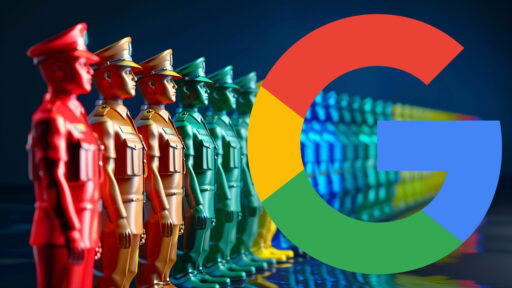Originally Posted on MarketingProfs How-To Articles by MarketingProfs
Catch up on select AI news and developments from the past week or so (in no particular order):
Anthropic’s AI lets you create bots to work for you. Anthropic has introduced a new feature for its AI chatbot, Claude, allowing users to create customized bots for various tasks, such as email assistance, online shopping, and personalized recommendations. This feature, called “tool use” or “function calling,” integrates with external APIs, enabling the creation of AI assistants that can analyze data, handle customer inquiries, and more. The tool supports image processing for applications like virtual interior design. Beta tests show promise with diverse applications like personalized AI tutors.
Importance for marketers: This development is crucial for marketers as it enables the creation of highly tailored customer engagement tools, enhancing user experience through personalized interactions. Marketers can use these AI-driven assistants to improve customer support, drive sales with personalized recommendations, and streamline operational efficiency.
Opera adds Google’s Gemini to its browsers. Opera has integrated Google’s Gemini AI models into its Aria AI extension, enhancing its ability to provide up-to-date information and conversational responses. Aria, which can answer queries and write code, now benefits from Gemini’s high-performance AI, including text-to-audio capabilities. Available across all Opera browsers, including Opera GX, this integration offers users an improved browsing experience with features like AI-driven image generation and conversational read-aloud responses.
Importance for marketers: This integration highlights the growing trend of incorporating advanced AI into everyday tools, providing marketers with new opportunities to engage audiences. By leveraging AI capabilities, marketers can deliver more interactive and personalized content, enhance user engagement, and improve the overall customer experience on digital platforms.
AI models have favorite numbers. AI models from major providers, including OpenAI’s GPT-3.5 Turbo, Anthropic’s Claude 3 Haiku, and Google’s Gemini, exhibit non-random behaviors when asked to select random numbers. These models tend to favor specific numbers and show biases similar to human behavior. This phenomenon is attributed to the training data they rely on, highlighting the challenges of creating truly random AI responses and the importance of understanding AI biases.
Importance for marketers: Understanding AI biases is critical for marketers who rely on AI for data analysis and decision-making. Recognizing these limitations can help marketers better interpret AI-generated insights and avoid potential pitfalls in targeting and personalization strategies.
Microsoft’s Copilot is now on Telegram. Microsoft’s AI-powered Copilot, now available on Telegram, allows users to interact with the chatbot in a conversational manner. Copilot can answer a wide range of questions and provide assistance across various topics. Accessible via the username @CopilotOfficialBot, this feature is free for Telegram users on both mobile and desktop platforms. This expansion indicates Microsoft’s intent to integrate AI into more social applications.
Importance for marketers: The integration of AI chatbots like Copilot into popular messaging apps presents marketers with new channels for customer engagement and support. By utilizing such AI tools, marketers can offer real-time assistance, enhance user interactions, and gather valuable customer insights, ultimately driving better customer experiences and increased brand loyalty.
OpenAI has a new safety team—run by Sam Altman. OpenAI has established a new safety team led by CEO Sam Altman and board members Adam D’Angelo and Nicole Seligman. The team will focus on evaluating and improving safety processes within OpenAI, addressing concerns about the company’s commitment to safety following high-profile departures and internal conflicts. The team’s initial task is to assess and enhance existing safety practices, with updates to be shared publicly.
Importance for marketers: This move signals OpenAI’s recognition that at least the appearance of safety and transparency matters, including to businesses that depend on AI.
Chromebook Plus now includes a year of Google One AI Premium. Google’s Chromebook Plus now offers 12 months of Google One AI Premium, including access to advanced AI features and 2TB of storage, starting at $349. New AI capabilities in ChromeOS 125 include generative wallpapers, AI-powered text summarization, and a Magic Editor for photo editing. Additional enhancements include improved calendar integration, screen recorder options, and OCR for local image search. These updates aim to enhance user productivity and creativity.
Importance for marketers: The inclusion of advanced AI features in affordable devices like Chromebook Plus provides marketers with powerful tools to enhance content creation and productivity. Harnessing these AI-driven capabilities can streamline marketing processes, improve campaign efficiency, and enable more dynamic and personalized content delivery to target audiences.
Former OpenAI board members say it can’t be trusted to govern itself. Former OpenAI board members argue that AI companies cannot be trusted to self-govern and call for third-party regulation to ensure accountability. They cite concerns about OpenAI’s internal culture and recent events, including the return of CEO Sam Altman and the departure of key safety-focused employees. The former board members emphasize the need for independent regulatory frameworks to balance innovation with safety and ethical considerations.
Importance for marketers: Regulatory oversight of AI companies is crucial for maintaining ethical standards and consumer trust. Marketers must stay informed about regulatory developments to ensure compliance and use AI technologies responsibly. Transparent and accountable AI practices can enhance brand reputation and foster consumer confidence in AI-driven marketing initiatives.
Elon Musk’s AI startup now valued at $24 billion. Elon Musk’s AI startup, xAI, has raised $6 billion in Series B funding, boosting its valuation to $24 billion. The funds will be used to bring xAI’s products to market, build advanced infrastructure, and accelerate R&D. Backed by investors like Andreessen Horowitz and Sequoia Capital, xAI aims to challenge leading AI companies like OpenAI and Alphabet in the competitive AI landscape.
Importance for marketers: The significant funding and growth of xAI highlight the competitive and rapidly evolving AI industry. Marketers should monitor emerging AI players and technologies to stay ahead of trends and capitalize on new AI-driven opportunities for innovation and competitive advantage in their marketing strategies.
iOS 18 Project Greymatter will use AI to summarize notifications, articles, and more. Apple’s upcoming iOS 18, part of Project Greymatter, will introduce various AI enhancements, including summarization of notifications and articles, transcription features, and improved photo editing tools. Siri will receive updated response capabilities, and Notes will gain AI-powered transcription and summarization. These features aim to improve user experience by providing more intelligent and practical AI-driven functionalities across Apple devices.
Importance for marketers: The AI enhancements in iOS 18 offer marketers new tools for content creation, organization, and communication. By employing these advanced features, marketers can enhance productivity, streamline workflows, and deliver more personalized and engaging content to their audiences, ultimately improving marketing efficiency and effectiveness.
OpenAI offers nonprofits discounts on corporate ChatGPT. OpenAI is offering discounts on its corporate ChatGPT subscriptions to nonprofit organizations, reducing costs for large nonprofits by 50% and lowering the monthly fee for smaller nonprofits. Also, OpenAI has partnered with the International Rescue Committee (IRC) to develop an education chatbot for crisis zones. This initiative aims to make AI more accessible and beneficial for humanitarian efforts.
Importance for marketers: This initiative demonstrates the potential for AI to drive social impact and support nonprofit activities. Marketers working with or within nonprofit organizations can use discounted AI tools to enhance their outreach, communication, and service delivery, making their efforts more efficient and impactful.
UN chief cites the promise and perils of dizzying new technology as “AI for Good” conference opens. The UN telecommunications agency’s AI for Good conference focuses on guiding the use of AI for beneficial applications while mitigating its risks. Keynote speakers, including OpenAI’s Sam Altman, discuss AI’s potential in areas like education, healthcare, and disaster response, alongside concerns about misinformation and bias. The event emphasizes the need for balanced development and global access to AI technologies.
Importance for marketers: The conference highlights the importance of ethical AI deployment and the balance between innovation and risk management. Marketers should be aware of AI’s potential for both positive impact and unintended consequences, ensuring responsible and transparent use of AI in their strategies to build trust and credibility with their audiences.
California advances measures targeting AI discrimination and deepfakes. California lawmakers are advancing proposals to regulate AI, aiming to prevent algorithmic discrimination and ban deepfakes related to elections and pornography. These measures include requiring companies to disclose AI use, assess models for bias, and provide transparency in AI-driven decisions. The proposed regulations seek to build public trust and address the potential harms of AI technologies.
Importance for marketers: Marketers must stay informed about emerging regulations to ensure compliance and ethical use of AI in their campaigns. Transparency and fairness in AI-driven marketing practices are essential for maintaining trust and avoiding legal and reputational risks. Understanding and adhering to these regulations can enhance brand integrity and customer loyalty.
FCC will consider rules for AI-generated political ads on TV and radio, but can’t regulate streaming. The FCC is proposing rules requiring political advertisers to disclose the use of AI-generated content in TV and radio ads. This move aims to increase transparency and prevent misleading information in political communications. However, the regulations would not cover digital and streaming platforms, highlighting a gap in the oversight of AI-generated content across different media.
Importance for marketers: Transparency in AI-generated content is crucial for maintaining public trust. Marketers involved in political advertising must be aware of these proposed regulations and ensure clear disclosure of AI use. While the rules currently exclude digital platforms, marketers should proactively adopt similar transparency practices across all media to uphold ethical standards and build credibility with audiences.
Google’s AI tool is producing misleading responses that have experts worried. Google’s new AI-powered search engine feature, which generates instant answers, has produced several incorrect and misleading responses. This issue, known as “hallucination,” raises concerns about the reliability of AI-generated information and its potential to spread misinformation. Experts warn that AI models need stricter oversight and improvements to ensure accuracy and prevent the dissemination of falsehoods.
Importance for marketers: Marketers relying on AI for content generation and information dissemination must be cautious of potential inaccuracies. Ensuring the accuracy and reliability of AI-generated content is critical to maintaining trust and credibility with audiences. Marketers should implement robust fact-checking processes and be vigilant about the potential risks of AI-generated misinformation.
Ex-OpenAI board member provides her first detailed account of CEO ouster. Former OpenAI board member Helen Toner provided a detailed account of CEO Sam Altman’s ouster and subsequent rehiring, citing issues such as psychological abuse and toxic workplace culture. The controversy highlights internal conflicts and governance challenges within OpenAI, raising questions about the company’s leadership and commitment to ethical practices.
Importance for marketers: This account underscores the importance of strong governance and ethical leadership in organizations. Marketers should consider the ethical practices and reputation of AI providers when integrating their technologies.
Klarna using GenAI to cut marketing costs. Fintech company Klarna is utilizing generative AI to reduce marketing costs by $10 million annually. By using AI tools like Midjourney, DALL-E, and Firefly for image generation, Klarna has significantly reduced image production and external marketing expenses. AI has also enabled more frequent updates to app and website visuals, improving efficiency and reducing reliance on stock imagery.
Importance for marketers: Klarna’s successful use of AI to cut marketing costs and enhance efficiency demonstrates the potential for AI-driven optimization in marketing operations. Marketers can adopt similar AI tools to streamline content creation, reduce expenses, and improve campaign agility, ultimately driving better ROI and more impactful marketing efforts.
EU data protection board says ChatGPT still not meeting data accuracy standards. The EU’s privacy watchdog has determined that OpenAI’s efforts to improve the factual accuracy of ChatGPT’s outputs are insufficient to comply with EU data accuracy standards. Ongoing investigations by national privacy authorities highlight concerns about the reliability and compliance of AI-generated information with data protection rules.
Importance for marketers: Compliance with data accuracy standards is crucial for marketers using AI tools like ChatGPT. Ensuring that AI-generated content meets regulatory requirements helps maintain legal compliance and protects brand integrity. Marketers must prioritize accuracy and transparency in their AI-driven initiatives to build and sustain consumer trust.
You
can find last
week’s AI Update here.
Editor’s
note: GPT-4o was used to help compile this week’s AI
Update.






